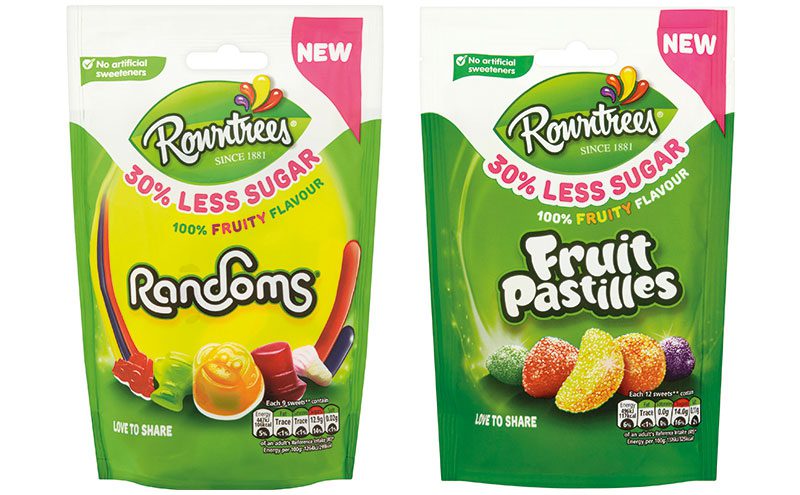Nestlé heaps praise on low sugar

HAVING your cake and eating it is something most everyone wants from time to time and there are numbers to prove it – which should be good news for reduced-sugar versions of popular confectionery brands.
Quoting figures produced by Kantar, Nestlé Confectionery, claims that 92% of UK households are attempting to manage or reduce the amount of sugars in the food they buy and 53% of those who purchase sweets would be happy to purchase a reduced-sugar version of their favourite sweet brand.
That might have positive ramifications for the prospects of the many low and no sugar versions of traditional favourites, including Nestlé’s own Rowntree’s Fruit Pastilles, currently lining c-store shelves, but only if quality is there, according to the firm.
A spokesperson for Nestlé UK & Ireland said: “With UK consumers looking to manage their sugar consumption, but unwilling to compromise on taste, any reduced-sugar version of a favourite brand must ensure satisfaction is guaranteed.
“That is why we have spent two years in research and development to ensure our new Rowntree’s 30% reduced-sugar sweets are absolutely bursting with flavour. What’s more, with maize fibre replacing sugar in the new sweets we are proud to have created a product that continues to contain ‘no artificials’.”
• Nestlé launched Rowntree’s Fruit Pastilles 30% Reduced Sugar and Rowntree’s Randoms 30% Reduced Sugar in summer 2017.
The sugar content of both products was reduced by substituting maize (corn) fibre for a portion of the sugar content, resulting in a reduction of total calories in each pack of 7%.

















